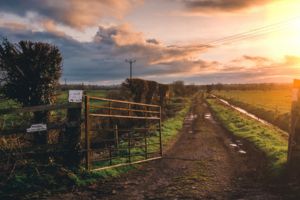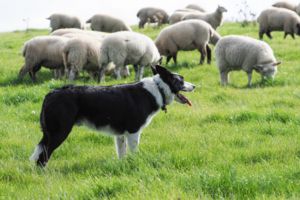The Importance Of Farm Succession Planning
The agricultural industry is incredibly complex, and farming is a time-consuming and demanding role. With so much to do to ensure the farm business runs smoothly, many farmers tend to put “planning for the future” on the back burner.
Passing a farm from one generation to the next can be a challenging process, but with farm succession planning, you can ensure that your farm is in the best possible position following the transition.
In this blog, we are going to outline the importance of farm succession planning and share our tips on how to get started.
 What Is Farm Succession Planning?
What Is Farm Succession Planning?
Farm succession planning is the process of establishing a long-term plan outlining how the farm is going to be handed over from the current owner to the chosen successor/s. It involves the smooth transfer of farm ownership, business management and operation.
Farm succession planning also involves making crucial decisions about finances and other family assets. Wills, trusts and estate planning documents should be drawn up and signed to ensure the decisions made are legally binding and that the current owner's wishes are carried out.
Why Is It Important?
Having a farm succession plan has a range of benefits, especially if it is a family-run farm. For starters, it provides certainty, clarity and peace of mind for yourself and your loved ones. It will provide an opportunity for the future generation to prepare for their future roles within the farm.
It also allows you to create a fair plan so you can hand the farm business over to someone who actually wants it whilst ensuring non-farming children and/or family members also get a share of assets as per your wishes.
This will help to ease potential conflicts that will undoubtedly arise if there is no plan in place. Unfortunately, the lack of a farm succession plan can lead to disputes over ownership and management, which can then create irreparable cracks within family relationships.
Farm succession planning also provides an opportunity for you to evaluate the farm’s current position with the help of experienced professionals, such as agricultural solicitors and accountants. From there you can have productive and informed discussions about how to maximise future opportunities and fulfil the potential of the farm following the transition.
Having a well-established plan can also secure the future of the farm by ensuring that the farm can continue to operate smoothly as a business if the current owner retires, becomes ill or passes away.
Finally, planning the succession of your farm can help you minimise financial risk and reduce tax burdens. Inheritance tax, capital gains tax and pensions should be discussed with a legal professional to ensure that your succession plan includes the best way to optimise the tax position and ensure the amount of tax payable when handing the farm over is minimal.
 How Do I Get Started?
How Do I Get Started?
There is a lot to consider when creating a farm succession plan. Aside from the future of the family business and farming legacy, you have to consider the wishes of all parties involved, including your children and family members.
- Seek Legal Advice
You also must bear in mind that what is best for the success of the farm may not align with the wants of your loved ones. Ultimately, the decision is yours – but it should not be made rashly or without proper guidance.
To get started, we strongly recommend seeking the professional advice of a specialist agricultural solicitor who can advise you on your options and answer any questions you may have.
- Discuss The Options With Your Family
In addition, you should have an open and honest conversation with your loved ones.
If the farm is being handed over to one individual, you need to consider distributing assets to the family members who are not inheriting the farming business.
If multiple family members want involvement in the ownership and management of the farm, it may mean creating a partnership agreement.
Alternatively, if none of your children or family members are keen to take over the farm following your retirement, you may want to look into other options. This may mean liquidating and sharing your assets, renting the farm or selling the land.
Each of these options should be discussed within your family sooner rather than later.
The transition usually happens when the current farmer chooses to retire or take a step back from holding the reins. However, it can also happen in the event of illness or death. The truth of it is, that we never know what is around the corner.
So, to give yourself peace of mind, we strongly recommend setting aside some time to create a farm succession plan and secure the future of your farm.
- Log in to post comments

